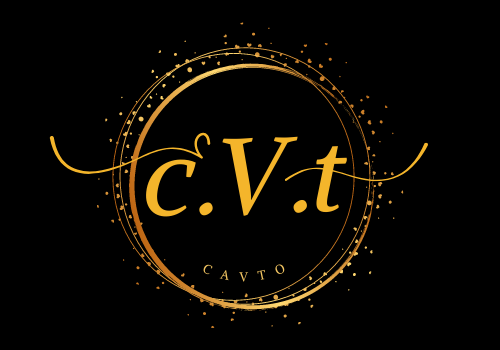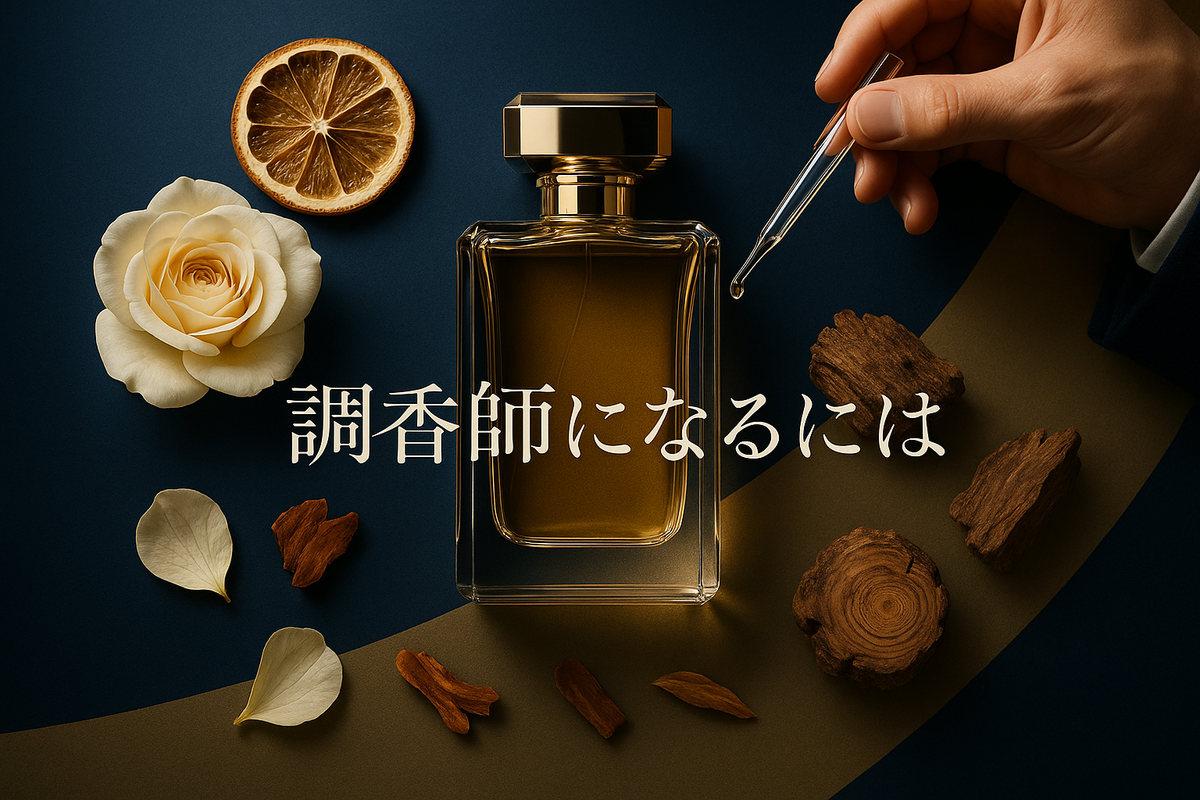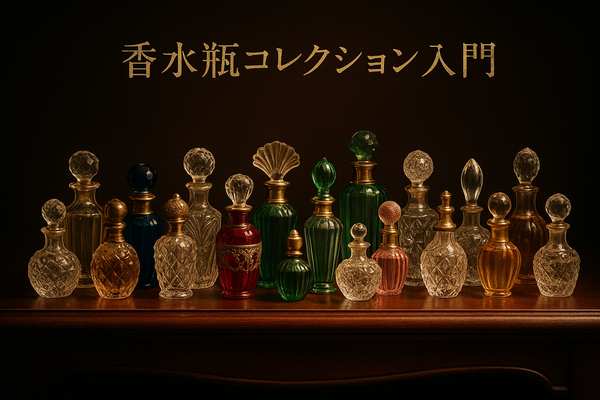How to become a perfumer? The path to becoming a fragrance professional
How to become a perfumer? The path to becoming a fragrance professional
A perfumer is an artist who creates fragrances, and also a scientist. Many people aspire to become a perfumer, a profession that attracts people with beautiful scents.
In this article, we will explain in detail the specific path to becoming a perfumer, the necessary skills, and the current state of the industry. We will provide useful information for those who want to become fragrance professionals.
table of contents
- About the profession of perfumer
- The basic path to becoming a perfumer
- Required skills and abilities
- Educational institutions and learning methods
- Types of perfumers and how they work
- Current status and future prospects of the industry
- Summary: The first step to becoming a perfumer
About the profession of perfumer
What does a perfumer do?
A perfumer is a specialist who creates scents for perfumes, cosmetics and everyday products:
-
Fragrance design and creation
- New fragrance concept planning
- Fragrance selection and blending
- A well-balanced fragrance
-
Market Analysis and Planning
- Analysis of consumer needs
- Spot and forecast trends
- Participation in product planning
-
Quality Control and Improvement
- Quality check of existing products
- Refining and optimizing formulations
- Safety checks and management
-
Customer service and presentations
- Meeting with the client
- Fragrance presentation
- Adjustments and modifications as required
Fields in which perfumers work
Perfume and cosmetics industry
- Luxury Perfume : Niche Fragrances, Designer Perfumes
- Mass-market perfume : Affordable perfumes, body mists
- Cosmetics : Foundation, lipstick, skin care
Daily necessities industry
- Detergents and fabric softeners : Fragrancing laundry products
- Shampoo and body wash : Personal care products
- Air fresheners : room fragrance, car fragrance
Food and beverage industry
- Flavorings : Flavorings as food additives
- Beverages : soft drinks, alcoholic drinks
- Confectionery : Confectionery flavoring
The basic path to becoming a perfumer
Common career paths
There are several typical paths to becoming a perfumer:
1. Getting a job at a fragrance company
This is the most common and reliable way:
-
University Graduate
- Chemistry, Biology, Agriculture, and other science-related faculties
- Even if you are a liberal arts major, it is possible if you have passion
- Acquire language skills (especially English)
-
Joined a fragrance company
- Japanese companies such as Takasago Fragrance and Soda Fragrance
- Foreign companies such as Givaudan, IFF, and Firmenich
- Initially started with sales and research and development
-
In-house training and experience
- Guidance from a senior perfumer
- Acquire basic knowledge of fragrances
- Practical learning of perfumery techniques
2. Internal promotion at a cosmetics and fragrance manufacturer
- Transfer from the research and development department
- Utilizing experience in product planning
- Combined with marketing knowledge
3. Independent/Freelance
- Consulting Perfumer
- Niche brand activities
- Artistic fragrance creation
Age and experience
Common careers by age
-
Early 20s
- Industry Introduction and Fundamentals
- Acquire knowledge about fragrances
- Beginner's training in perfumery techniques
-
Late 20s to early 30s
- Practical perfumery work begins
- Specialization of Specialized Fields
- Independent Production
-
Late 30s and above
- Active as a senior perfumer
- Guidance for the next generation
- Choice of independence and entrepreneurship
Required skills and abilities
Sensory abilities
Special ability of smell
-
A keen sense of smell
- Detecting subtle differences in scent
- Identifying hundreds of flavors
- Memory and reproducibility of scent
-
Aroma analysis ability
- Breaking down complex aroma components
- Understanding the change in scent over time
- Acquiring a sense of balance
-
creative sensibility
- New scent combination ideas
- The ability to express emotions through scent
- Developing artistic taste
technical ability
Chemistry/scientific knowledge
-
Understanding Organic Chemistry
- Structure and properties of fragrance molecules
- Chemical reactions and interactions
- Stability and safety knowledge
-
Perfumery technology
- Fragrance blending technology
- Density adjustment and balance
- Quality control method
-
analysis technology
- Gas chromatography
- mass spectrometry
- Sensory Evaluation Method
Business Skills
Commercial Sense
-
Market Understanding
- Understanding consumer needs
- Competitive analysis ability
- Trend prediction ability
-
Communication skills
- Coordination with clients
- Team collaboration
- Skills in verbalizing scents
-
project management
- Schedule Management
- Cost Consciousness
- quality assurance
Educational institutions and learning methods
Specialized Educational Institutions
Major Perfumery Schools Abroad
-
ISIPCA (Paris)
- Perfume, cosmetics and food fragrance vocational school
- Practical curriculum
- Strong connections with the industry
-
International Perfume School of Versailles
- Intensive Course
- From the basics to the applications of perfumery
- Students from around the world
-
GIP (Grasse Institute of Perfumery)
- School of Perfume in Grasse
- Acquire knowledge of natural fragrances
- French Perfumery Technique
Study opportunities in Japan
-
Tokyo Biotechnology College
- Cosmetics Development Course
- Basic learning of perfumery techniques
- Industry Collaboration Programs
-
Faculty of Chemistry and Agriculture, University
- Basic chemistry knowledge
- Acquiring research methods
- Building the theoretical foundation
How to study on your own
Acquiring basic knowledge
-
Reading technical books
- Books on perfumery techniques
- Textbook on fragrance chemistry
- Industry history and culture
-
Online learning
- Basic course in perfumery
- Fragrance Identification Practice
- Collecting industry information
-
Practical Exercises
- Perfuming experience with essential oils
- Create a scent diary
- Sample creation and evaluation
Sensory training
-
Everyday scent awareness
- Pay attention to the scents around you
- Scent memory and recording
- Vocabulary development
-
Perfume shop experience
- Sample various perfumes
- Exchange information with sales staff
- Spotting trends
Types of perfumers and how they work
in-house perfumer
Major fragrance company
Features:
- Stable employment and income
- Extensive research facilities
- Participating in global projects
Main companies:
- Givaudan (Switzerland)
- IFF (USA)
- Symrise (Germany)
- Firmenich (Switzerland)
- Takasago International Corporation (Japan)
Cosmetics and perfume manufacturer
Features:
- Brand-specific perfumery
- Marketing Collaboration
- Consumer-friendly product development
Main companies:
- Shiseido, Kao (Japan)
- L'Oreal (France)
- Unilever (UK/Netherlands)
Freelance Perfumer
Independent Consultant
Features:
- Highly flexible working style
- Working with a variety of clients
- Unique fragrance creation
challenge:
- Income instability
- The need for sales activities
- Burden of capital investment
Niche brand management
Features:
- Artistic Expression
- A sense of exclusivity through small-scale production
- Direct customer relationships
Current status and future prospects of the industry
market trends
Global market growth
-
Expanding market size
- The global fragrance market is growing year by year
- Increasing demand in emerging countries
- Increased interest in premium products
-
technological innovation
- AI-based perfumery support
- New Extraction Technology
- Sustainable Fragrance Development
Characteristics of the Japanese market
-
Demand for high quality
- Meticulous quality control
- Seasonal scents
- Accommodating delicate tastes
-
Development of niche markets
- Interest in unique perfumes
- Artistic Expression
- The rise of experiential consumption
Future Outlook
New Opportunities
-
Sustainability
- Environmentally friendly fragrance development
- Ethical sourcing
- Circular business model
-
Personalization
- Personalized scent
- AI-driven customization
- Emphasis on experience value
-
New Applications
- Wellness Aromatherapy
- Scents in VR and the Metaverse
- Use in the medical and nursing care fields
Desired talent profile
- Ability to respond to diversity
- Ability to utilize digital technology
- Sustainability Awareness
- A global perspective
Perfumer's career in Japan
Japanese Fragrance Culture
It is also important to understand Japan's unique fragrance culture:
The tradition of incense
- Sensitivity to delicate scents
- Emphasis on seasonality
- Connecting with spirituality
Ranjatai and modern perfumery
Another important role of a perfumer is to bring traditional scents back to life in modern times, as in our Ranjatai Eau de Parfum:
- Research into historical perfumes
- Contemporary interpretations and expressions
- Cultural inheritance and development
Learn more about Ranjatai Eau de Parfum
Summary: The first step to becoming a perfumer
To summarise the path to becoming a perfumer:
Key Points for Success
-
Passion and Persistence
- A deep love for scents
- Long-term motivation to learn
- The mental strength to overcome setbacks
-
Strengthening basic skills
- Acquiring chemical knowledge
- Continuing sensory training
- Acquire a broad education
-
Practical experience
- Industry experience
- Guidance from a mentor
- Taking on challenges without fear of failure
-
Network Construction
- Interacting with industry professionals
- Connect with your peers
- Expanding international horizons
What you can do now
Aspiring perfumers can start right now by:
-
Raising awareness of scent
- Pay attention to everyday scents
- Experience a variety of scents at a perfume shop
- Expand your scent vocabulary
-
Learn the basics
- Reviewing the Basics of Chemistry
- Read books on perfumery
- Collect industry information
-
Get hands-on experience
- Try perfumery with essential oils
- Keep a scent diary
- Participate in a perfumery workshop
-
Make a career plan
- Clarify the ideal image of a perfumer
- List the skills and experience you need
- Create a concrete action plan
A perfumer is not just a technician, but an artist who moves people's hearts through the invisible art of scent. The path to becoming a perfumer is never smooth, but with passion and hard work, the path will surely open up.
Find your own expression in the world of fragrance and aim to become a perfumer who inspires many people.
Related articles
- Famous Perfumers: Great People Who Changed the World of Fragrance - Learn from the Great Perfumers
- What is the difference between natural and synthetic fragrances ? A detailed explanation of the fragrances used by perfumers




![[Sengoku Fragrance] Ranjatai Eau de Parfum 50ml](http://cavto.jp/cdn/shop/files/MG_1544_e13ac5a9-8c72-4da5-8c41-ac687194c31d_300x300.jpg?v=1744864411)